INEQUITY IN EYE HEALTH
No one should be needlessly blind in Australia. But the harsh reality is that many Aboriginal and Torres Strait Islander Peoples don’t have the same access to high quality eye care that the rest of Australia does.
In fact, Aboriginal and Torres Strait Islander Peoples generally don’t enjoy the same health outcomes as non-Indigenous Australians. And one of the most common health problems they face is vision impairment and blindness.
“I hope all Aboriginal children will grow up in an equal world.”
- Professor Fred Hollows
Without good eyesight, everyday things like driving, studying, working, and staying socially connected is a struggle for so many people. This causes isolation and it can also have a negative socio-economic impact on the entire community.
Sign our pledge to stand beside Aboriginal and Torres Strait Islander Peoples as an ally. We will send you resources on how you can do that.
EYE HEALTH IN INDIGENOUS COMMUNITIES
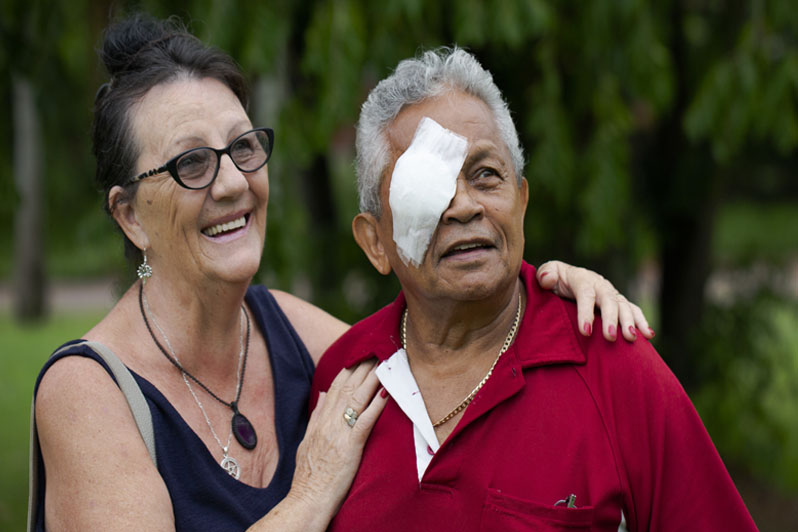
Aboriginal and Torres Strait Islander Peoples are three times more likely to be blind than other Australians. And they are 12 times more likely to suffer from blinding cataract. What’s more is that they are less likely to receive the necessary surgery on time. This puts them at greater risk of permanent blindness, even though it’s preventable.
There are many reasons for the gap in eye health between Aboriginal and Torres Strait Islander Peoples and other Australians. A major one is that there are not enough public eye health services.
Far too many Aboriginal and Torres Strait Islander Peoples are stuck on waiting lists with their vision worsening, although cataract can often be fixed with a fairly straightforward procedure.
Because of COVID-19 people who have been on the waiting list for cataract surgery have had to wait even longer. But even before the pandemic, only 37% of the need for cataract surgery for Aboriginal and Torres Strait Islander Peoples in the Greater Darwin area was being met.
WITH YOUR HELP, WE CAN MAKE A DIFFERENCE
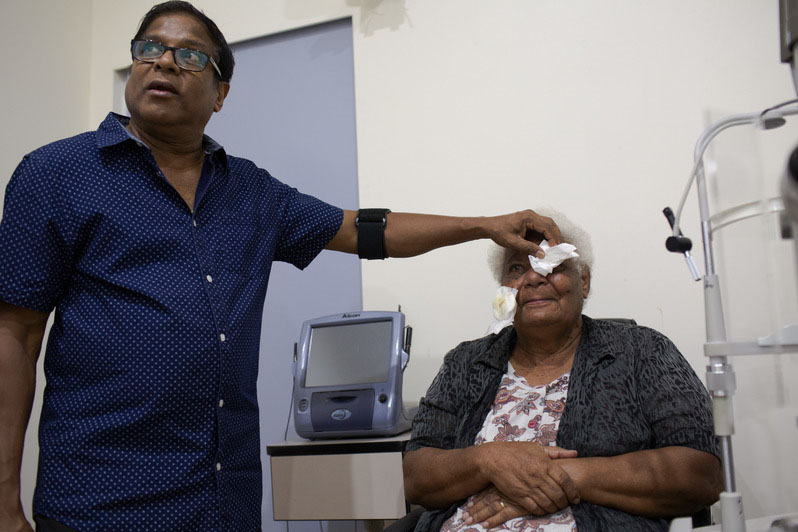
Thanks to our generous supporters, The Fred Hollows Foundation, in collaboration with local community leaders and eye health professionals, is helping restore sight where it’s needed the most.
We recently organised a dedicated surgery intensive in Darwin, thanks to our donors. In order to help clear the cataract backlog, we partnered with Darwin Private Hospital. With the generous support of their workforce, we took pressure off the public health system. More importantly, this allowed us to help Aboriginal and Torres Strait Islander Peoples access cataract surgery before it was too late.
In just one day day, we were able to perform surgery on 17 patients, restoring their sight and putting a smile on their faces. And we were able to provide services for them in a culturally-safe and appropriate way.
Meet a few of the people someone like you has helped restore sight to.
Betty Harris, 72, retired healthcare worker
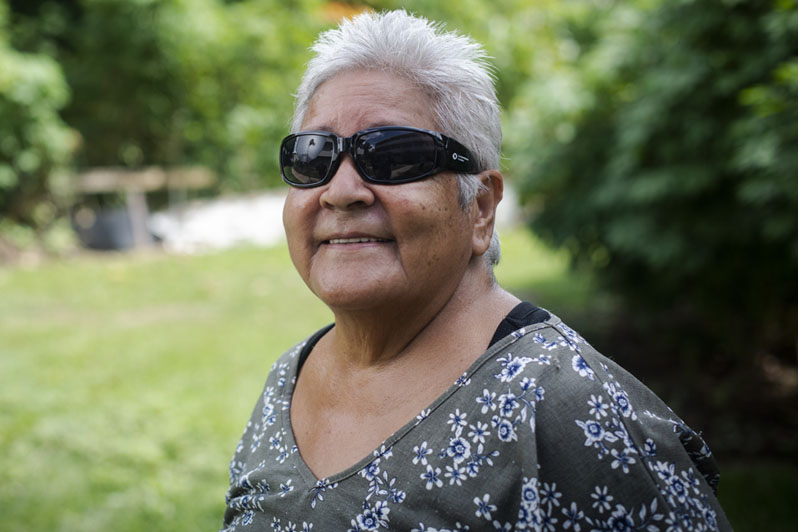
Betty is a loving mother, grandmother, and great grandmother.
“I’ve got a great granddaughter who’s about 7 and she’s always wanting to hang with me all the time. She wants to go swimming all the time. I’ll be able to take her,” Betty told us before the surgery.
After the successful surgery, Betty said that things were much clearer now. She is happy that she’ll be able to drive herself around once again and won’t have to rely on her daughter.
“I would encourage people to have the surgery done. If it’s going to help others, I’m happy to talk to people and encourage them.”
Ronald McMohan, 69, retired road train driver
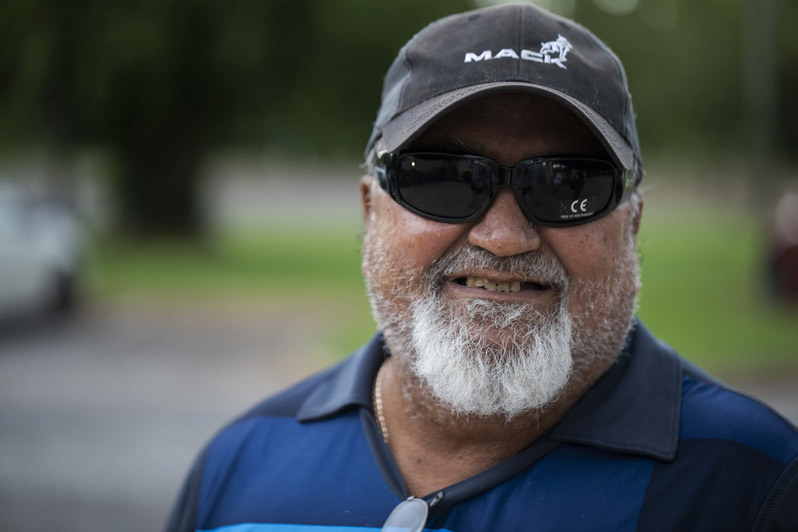
Born and bred in Darwin, Ronald is a retired road train driver used to cart cattle. Ronald’s vision is blurry because of cataract, making it impossible for him to read.
“I had a couple of eye check-ups. I have to wear reading glasses, but it’s getting worse,”
Ronald said.
Ronald is excited about the surgery, and getting his sight restored.
“I’m not nervous. My missus had her cataract done about four weeks ago.”
Ronald is looking forward to being able to read once again: “I read the NT News, I like to see the sports results.”
Gilbert Knowell, 60, proud Gaagudju man
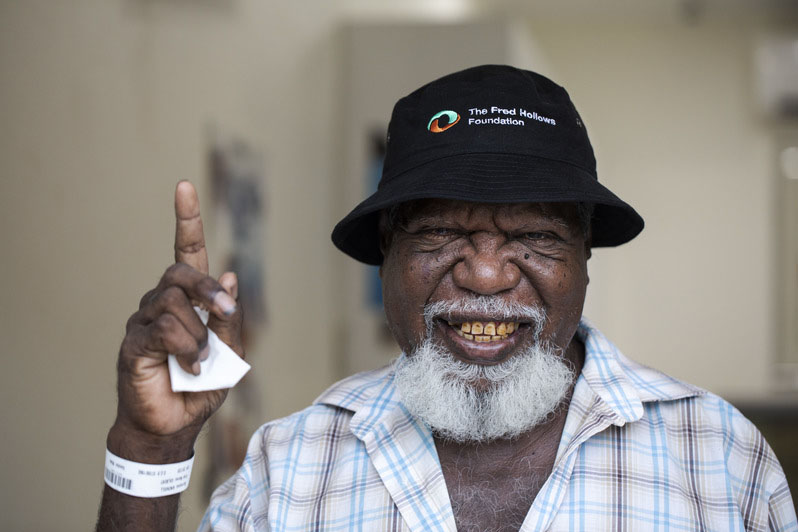
Gilbert first noticed his eyesight was deteriorating more than two years ago. His right eye is blurry from cataract, which makes it difficult for him to do his daily tasks and care for his wife Marlene.
“I do the shopping and I clean up here, mop the floor. Sometimes I do the cooking. It will be better once my eye is fixed.”
Gilbert is a dad to three daughters, and has seven grandchildren. He is looking forward to playing with them more once his sight is restored.
Norman de la Cruz, 73, army veteran and singer
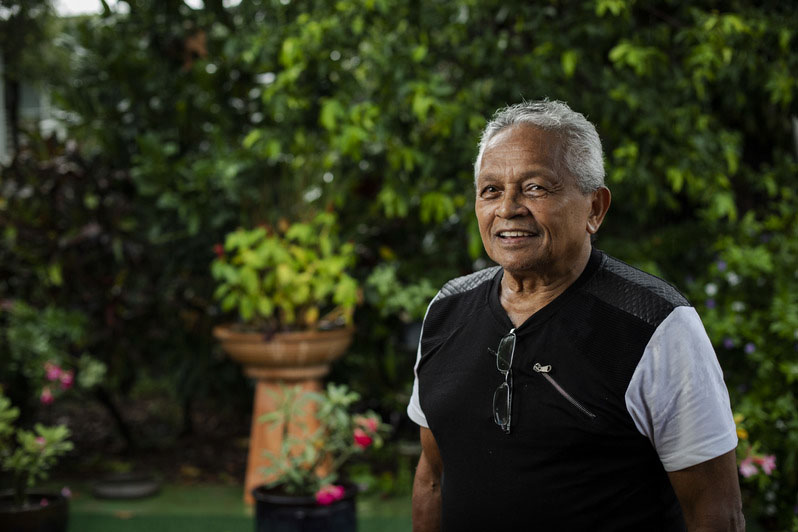
Norman is a singer in a popular local band, Midnight Cruz, and performs at the Casuarina Club.
When he was young, Norman led a busy life, serving in the regular army and the reserves. He was also a talented rugby league and union player.
Norman had cataract surgery on one eye in the last intensive The Foundation held in March 2020, before COVID restrictions. And has had cataract removed from his other eye now too.
“I was a bit nervous, but I like to face things head on. I suppose I think if it’s got to be done it’s got to be done,”
he said.
HELP US CLOSE THE GAP
While The Fred Hollows Foundation has made progress with our Indigenous Australia Program in reducing the gap, we still have a lot to do in order to achieve complete eye health equity.
SIGN THE PLEDGE
Join us and stand beside Aboriginal and Torres Strait Islander Peoples as an ally.
Fred once said that “the status of Aboriginal health is worse than that of indigenous people in any other country”. He also said that “individuals can and must help. Look at the problem and do something, don’t just sit back.” And that’s why we are committed to Closing the Gap.
With your help, we can
- Strengthen regional eye health services;
- Train and strengthen the eye health workforce;
- Strengthen eye care in Aboriginal Community Controlled Health Services;
- Finally eliminate trachoma;
- Ensure governments adopt The Strong Eyes, Strong Communities national plan.